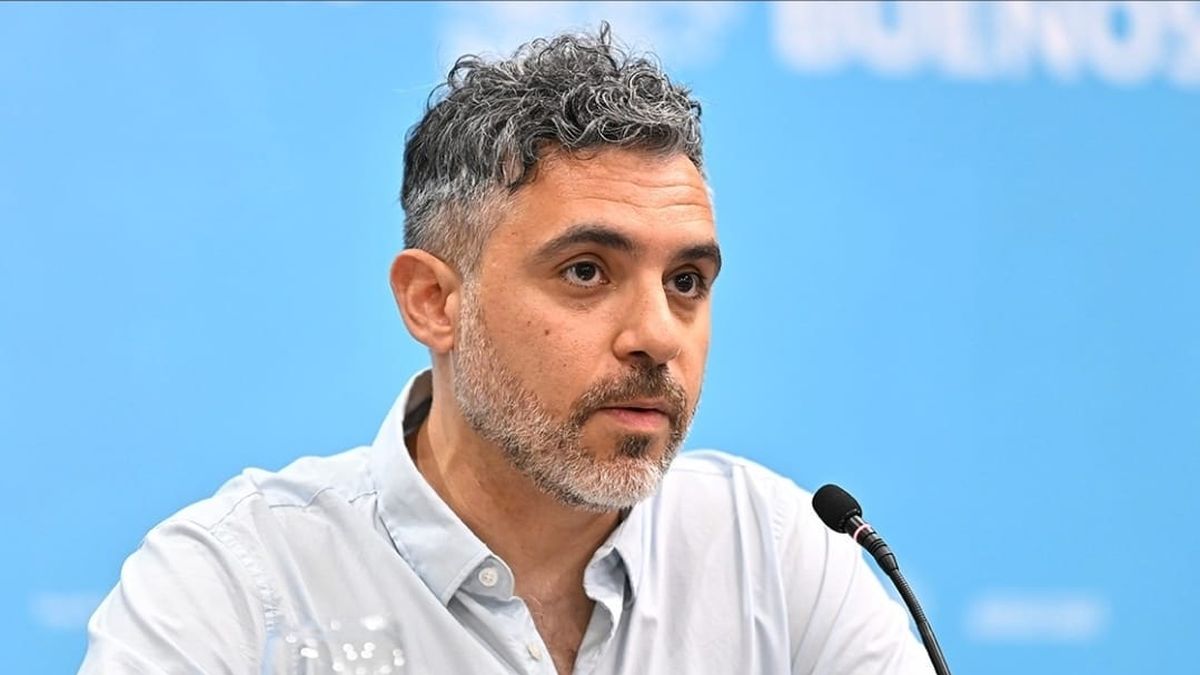CG: According to the president, the governors are degenerated fiscal because they refuse to do what he did with absolute irresponsibility in the State Administration. What we refuse to have to have zero public works, to cut social assistance programs in the midst of a crisis, to paradinate the public health system, to paradinance education, to the extent that we do not make that wild adjustment, we are considered fiscal degenerates. I believe that the degenerate fiscal is what makes me pay the cost of adjustment to retirees, to public employees and the middle class.
CG: I think no one in our space is in love with the fiscal deficit as they want to believe. It is desirable to have a budget and eventually a surplus. Having a surplus allows the public sector to have savings and with that savings form a countercyclical fund, for example. The fiscal deficit or surplus is an instrument of economic policy. Paradoxically, you could have a fiscal surplus or fiscal balance by promoting public investment because you can generate an increase in collection greater than the increase in public investment by the multiplier. Then you used the fiscal result transitory as an instrument to generate economic growth and then balance the accounts. The opposite can also happen, that you say I am going to make the adjustment to have fiscal balance, that the economy is contracted and then have a deficit.
Q: Do you think we can re -enter that shell?
CG: VAT has already signs that the activity will go wrong. Probably the income tax, if this year is not a year of economic growth as expected by the government, it will be wrong. And that in the next 12 months will bring fiscal income problems for the national government that, in order to show that it has a surplus will step on the execution of the expenditure as much as I can and that will put the State in crisis. If you add to that that the financial result worsens, I am very concerned about how the government will be to avoid an insolvency crisis.
Q: An insolvency crisis?
CG: I think it is one of the risks in front of this government. It seems to me that it is a specific risk. If not, they would not be having all this financial risk that is seen in the market. It is not kuka risk. The market evaluates risks. And why is the treasure debt so much risk? What is reading the market? That there are inconsistencies in the economic program. It is not the cuca risk.
Q: Are many taxes paid in Argentina?
CG: Some pay many taxes and others pay few.
Q: Who pays little?
CG: Marcos Galperín, for example. The lab for the train, the subway, reaches work, buys food in commerce, returns, pays the services, that pays a lot of taxes. Much more taxes based on your income than those paid by Marcos Galperín in Argentina.
Q: Is the reference to Galperín by the Law of Knowledge Economics or is it for its fiscal residence?
CG: The two things, but clearly the second is worse. That does not pay tribute in Argentina according to the assets that it has and the income generated by that heritage, it seems to me an affront to Argentinity. He is Argentine, made his fortune here, his family made his fortune here. The minimum you would have to do is pay the taxes that correspond to you. Finding shortcuts in the completely corrupt fiscal elusion system that was mounted globally since the 60s seems to me hyper questionable in moral and ethical terms. When the guy who lives in a popular neighborhood and works in a factory or in a trade he has no way to avoid the tax system. With respect to the knowledge economy, incentives can be given but it is better not to find taxes.
Q: Would you have to eliminate tax spending?
CG: I think so. If I give you a tax exemption, do not account for anyone. It has to be clear that it is a state support and has to be auditable. I prefer to create an assistance fund that is conditioned to objectives. The tax expenditure must be eliminated and in contrast to that we must have public, transparent, auditable financing policies to boost the growth of strategic sectors because if later a company uses those resources to internationalize and not pay taxes in Argentina, what is it for?
Q: What importance do you assign to these elections?
CG: The result of September and then that of October is important because it will mark the pulse of whether or not people support the deepening of this scheme. I think not. In the province of Buenos Aires surely not. If you are not doing well in the election, the accompaniment he achieves in Congress with the Toma and Daca begins to run out. And if that accompaniment is exhausted, it is a government that begins to lose management and transformation capacity. The government is over, it seems to me, in the sense that it begins to visualize that Milei will not continue to rule. You will not be able to deepen the damage you have been doing. If this election marks a brake on the government, you cannot deepen the damage and start the democratic transition that is what we all expect and in 2027 another will rule.
Q: A transition?
CG: I think so, if you don’t win the choice, the system will look at Milei with other eyes. So far there is a lot of speculation with the popular support that the government has and many governors do not want to lose support to obstruct the government. But it is already evident that this does not go well for people and there are begin to tensions in state management. How much is willing to accept permanent power in Argentina to an authoritarian government? And I think that is where that conditioning that I tell you is played. He will continue to do things but being an unpacking president, which is healthy because that is what the mid -term elections are treated, if you do not have the votes, you can not do whatever you want either.
Q: What do you think of the fiscal competence proposed by Milei?
CG: It is an old right story, which starts from a wrong premise, which is that the investment depends on provincial, or municipal, or local taxes, or even the tax burden. I think it is shown that the investment depends on the effective demand, nobody will invest if you have no expectation that someone will buy what you will produce. If there is no demand, there is no investment. I can lower your costs in half, but if your buyers fall in half, you will not increase production. And we are seeing it, because the government is lowering wages and the fiscal cost is attacking but the investment is minimal. There is no increase in investment. If you have one in two stops stop, why are you going to buy another machine?
Q: What vision do you have of the Argentine tax structure?
CG: It is tremendously pro-cyclical. To the extent that the domestic market is shrink, the collection of taxes linked to the activity falls and that reinforces the need for adjustment. That is, it is a vicious circle. The economic crisis does not generate investment and also definance to the State due to falling collection and that worsens the adjustment of public spending, which has an impact even more negatively on investment, because the State does not do public works, so the investment multiplier is even smaller.
Q: What would a more reasonable tax scheme at the head of Axel Kicillof And your team?
CG: Look, I think a great national consensus is needed to resolve the fiscal situation in Argentina. A government or president does not resolve. We have to seriously discuss our federalism and we have to reopen discussions that perhaps were covered. The objective of the right -wing project in Argentina is that there is no true national unity, but that the national unit is only a rejunt of local interests and a spurious negotiation between the Executive and the provinces, which is reflected in the Constitution of 94. The Constitution of 94 broke the co -participation regime with objective criteria and established fixed coefficients, then the property of the underground wealth was given to the provinces Royalties collection and that departed even more national unity, because local interests begin to govern. Milei deepened that logic with the rigi that enables the provinces that adhere to companies do not contribute to the co -participation and enable regime to raise the collection of royalties. So what incentive will have a province that has wealth, exploitable natural resources, to defend national interest as a whole, to order the Argentine tax system? None.
Q: Does the fiscal transparency regime look like a useful tool?
CG: No, because the government’s logic is to tell the ribs to the rest based on the premise that there are fiscal degenerates that charge many taxes. But you have to look at what that level of the state has to do, what you are asking to do, to see if it is reasonable to collect what you are raising. The idea that prevails in the government is that in reality the expense is inflated, which is all political expense and that the way to eliminate that political expense is to adjust, lowering taxes. What they are doing is lowering retirement, lowering the salaries of public employees, paranating the claw, universities and the scientific-technological system. Meanwhile the payment of interest raises. If you are destroying the public health budget and you deregulate what the prepaid charges you, people are going to the provincial hospital. And what are you going to do? Are you going to tell the provinces that they have to have less resources? The approach is inconsistent.
Source: Ambito




